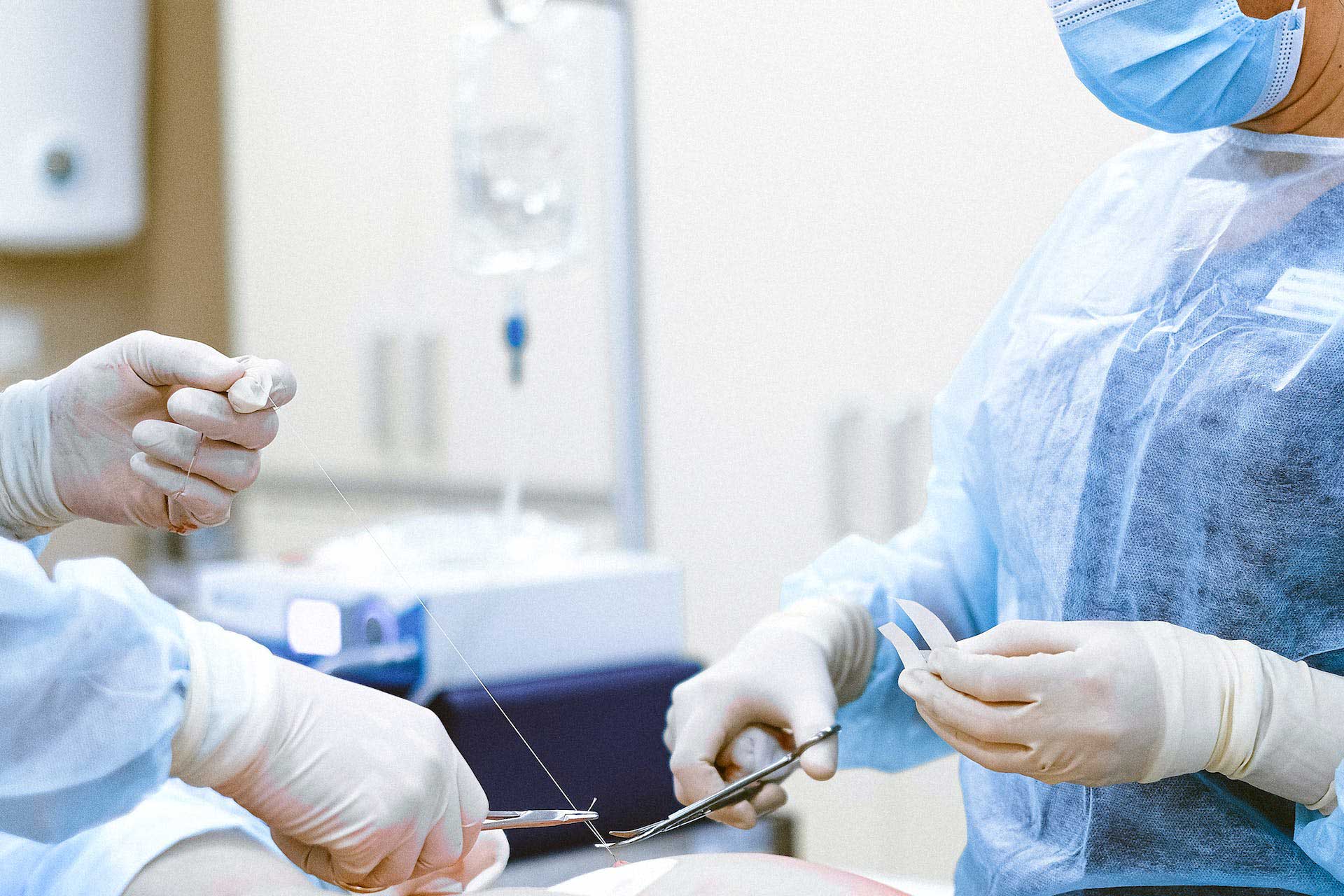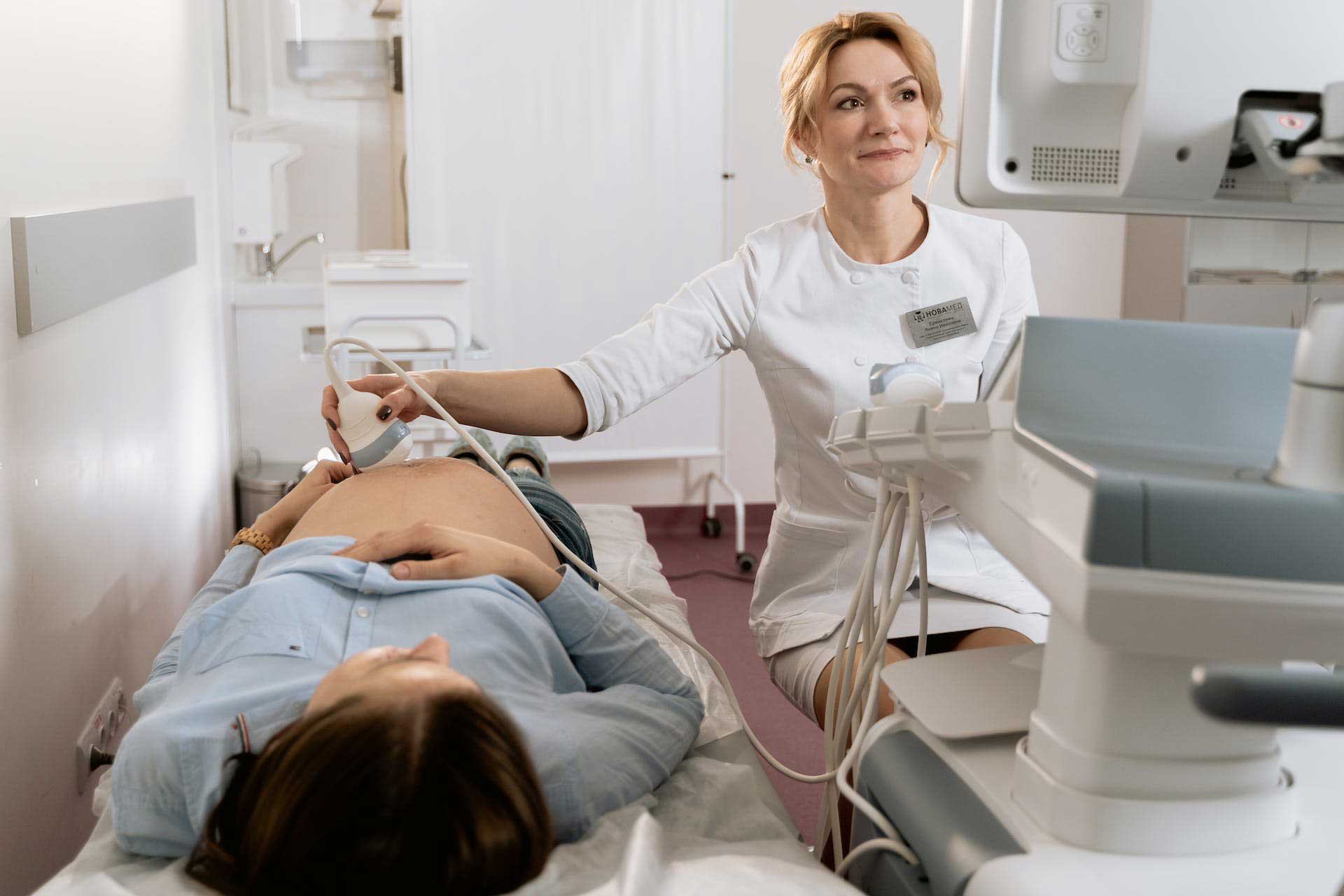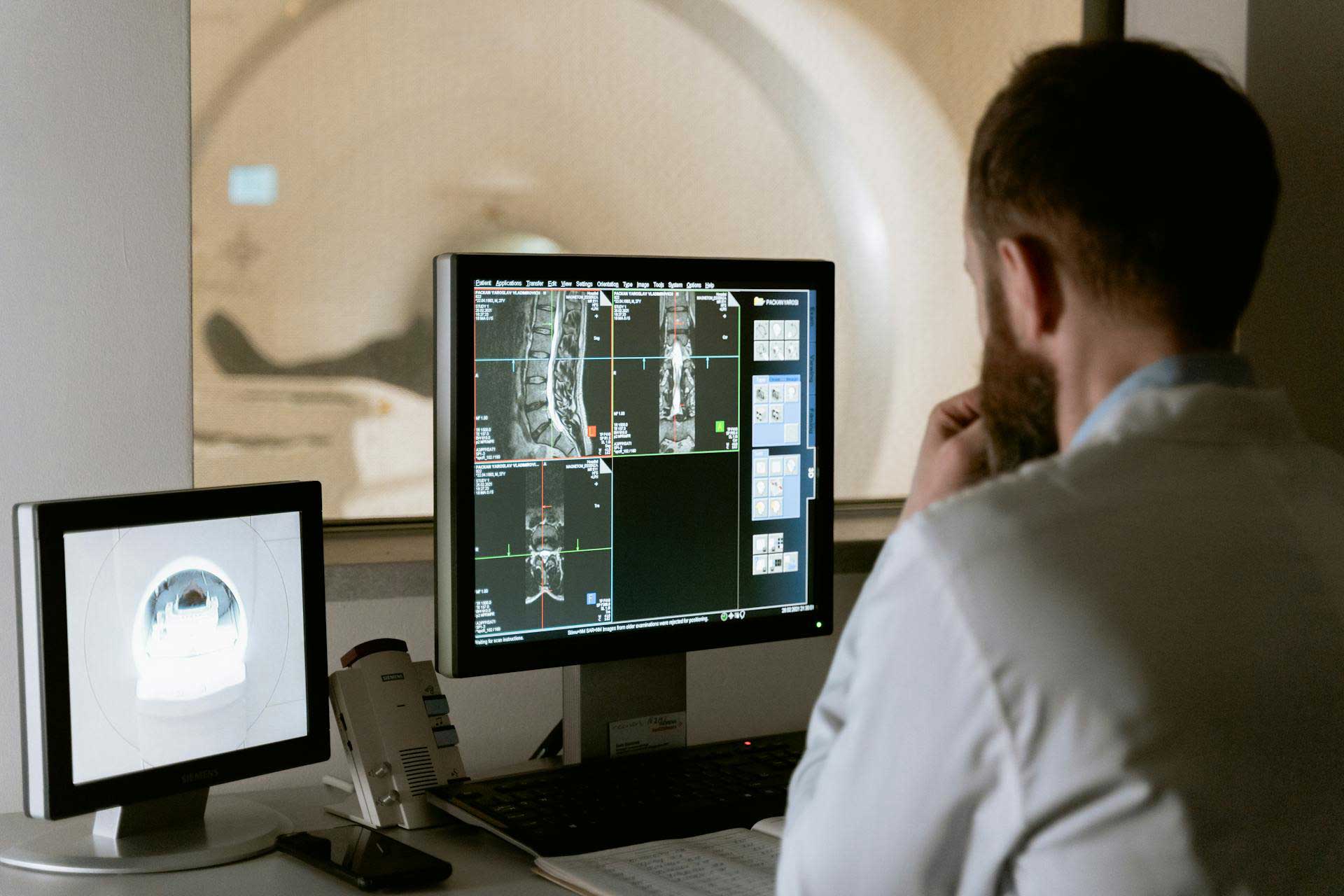Doctors and beyond: getting to know your hospital staff
Hospitals are large and often complex health institutions staffed by professionals specialising in different areas of medical science. Beyond the familiar roles of general practitioners and nurses, there are a wide range of positions and jobs crucial to hospital operations and patient care that many people may not even be aware of. From radiographers to histopathologist consultants, familiarising yourself with these roles may enhance your appreciation of these professions and better inform you about the intricacies of medical care.
Knowing who is taking care of specific health needs is also vital, as it enables patients and visitors to navigate the healthcare system more effectively and appreciate the collaborative effort in providing them with quality hospital care.
Here are a few unique and specialised medical professionals who play vital roles as hospital staff:
Various types of surgeons
The roles of surgeons vary depending on their specialisation. For example, orthopaedic surgeons focus on the musculoskeletal system and address issues related to bones, joints, and muscles. In this same field, there are surgeons specialising in hand and reconstructive microsurgery who deal with procedures involving the hands and limbs.
There are also breast surgeons that help treat breast-related medical conditions, which can include cancer treatment. There are neurosurgeons that handle surgeries related to the brain and nervous system, as well as trauma surgeons who are adept at managing emergencies requiring prompt surgical intervention. Many hospitals also have reconstructive and cosmetic surgeons on board. Every type of surgeon has their own unique skill sets and knowledge, making them vital to specialised patient care in hospitals.

Obstetricians and Gynaecologists
Ob-Gyns or obstetricians and gynaecologists are specialists who focus on women’s health, particularly concerning reproductive health, pregnancy, and childbirth. While some people, even women themselves, conflate the two medical professions, they have different roles. Obstetricians oversee every aspect of pregnancy, from prenatal to postnatal care, to ensure that the mother and child are in good health. Meanwhile, gynaecologists treat a wide range of issues related to women’s health and reproductive system, such as menstruation disorders, menopause, and contraception. They also take part in the diagnosis and treatment of gynaecological cancers in addition to performing surgeries like hysterectomies.

Histopathologist consultant
This is a profession you may not be familiar with because it is a highly specialised role. Indeed, only a few hospitals, including a select few within the Singapore hospital network, have the specific facilities and patient demographics to necessitate the presence of a histopathologist consultant. Their role is critical in diagnosing diseases by examining tissue and cell samples under a microscope.
Specifically, histopathologist consultants ensure accurate disease diagnosis to provide crucial information for treatment planning, especially in cancer and other tissue-related diseases. Their detailed analyses guide clinical teams in determining the most effective treatment approaches for diverse medical conditions. In addition, histopathologists participate in research and contribute to advancements in medical science and understanding of diseases.
Paediatrician and Geriatrician
Paediatricians focus on medical care in children, from infants to adolescents, and address various health issues that include developmental disorders and childhood illnesses. Their expertise is not just in treating diseases, but also in monitoring and supporting the healthy growth and development of children.
On the other hand, geriatricians focus on elderly patients and deal with the complexities of ageing. They manage multiple chronic conditions and geriatric syndromes, as well as work towards improving the overall quality of life for older adults. Both these roles are crucial in providing age-specific healthcare and cater to the needs of these particular age groups.
Neonatologist
Neonatologists are paediatricians who specialise in the care of newborns, specifically those who are ill or premature. Their expertise is critical in neonatal intensive care units (NICUs), where they handle complex medical conditions affecting newborn babies. These experts are knowledgeable about treating a range of newborn illnesses and providing life-saving interventions. Furthermore, they collaborate with obstetricians and paediatricians to provide comprehensive care for the mother and child, addressing any issues that may develop during the perinatal stage.
Orthopaedic Doctors
Those who get injured while playing sports or are experiencing sudden joint pain are treated by an orthopaedic doctor. They focus on diagnosing, treating, and managing musculoskeletal conditions, including issues in the bones, joints, ligaments, tendons, and muscles. Their role is pivotal in treating injuries such as fractures and dislocations, as well as chronic conditions like arthritis and osteoporosis. For additional support and resources, patients often turn to Ortho Bracing. These specialists use surgical and non-surgical means to treat musculoskeletal trauma, sports injuries, degenerative diseases, infections, tumours, and congenital disorders.
Radiologists and Radiographers
Radiologists use a variety of medical imaging techniques, such as X-rays, CT scans, MRI, nuclear medicine, and ultrasound to diagnose and treat diseases and injuries. They play a crucial role in interpreting these images and providing accurate diagnoses, which is essential for the appropriate treatment plan.
Do note that radiologists are not radiographers. The latter are healthcare professionals trained to perform the imaging procedures, ensuring that high-quality images are captured for analysis while taking care of patient safety and comfort during imaging.

Anaesthesiologists
Anaesthesiologists are highly skilled in administering anaesthesia safely during surgical procedures to guarantee that patients are pain-free and comfortable. Their role requires absolute precision and careful monitoring of the patient’s vital signs, as they must adjust anaesthesia levels appropriately throughout the surgery. Anaesthesiologists also help patients manage pain following surgery and occasionally treat chronic pain. Their knowledge is also essential in intensive care units, labour and delivery rooms, and operating rooms.
Nephrologists
Nephrologists are experts in kidney health, diagnosing and treating kidney-related illnesses such as infections, chronic kidney disease, and kidney-affected hypertension. They also oversee dialysis treatments for patients with end-stage renal disease. Nephrologists cooperate with other medical specialists to offer all-encompassing care that considers the different health problems of patients resulting from kidney failure.
Gastroenterologists
Gastroenterologists focus on the health of the digestive system or the gastrointestinal tract. They diagnose and treat conditions affecting the stomach, intestines, oesophagus, liver, pancreas, and gallbladder. Their expertise includes managing diseases such as irritable bowel syndrome, inflammatory bowel disease, gastroesophageal reflux disease (GERD), and peptic ulcers. In some hospitals, gastroenterologists also perform diagnostic procedures like endoscopies and colonoscopies.
Infectious Disease Consultant
Infectious disease consultants are medical specialists who diagnose and treat complex infections caused by organisms like bacteria, viruses, fungi, and parasites. You may be familiar with them during the pandemic, as they helped hospitals manage patients with COVID. They also handle other diseases like HIV/AIDS, tuberculosis, and emerging infectious diseases. These specialists are crucial in hospital infection control, as they advise on best practices to prevent the spreading of contagious diseases within healthcare settings. They also cooperate with other doctors to determine the best treatment plans for patients with persistent or unusual infections.
Recognising the Variety of Professions in Hospitals
The above-mentioned roles and specialised positions in hospitals and medical settings highlight the collaborative nature of healthcare and the contribution that each medical provider and professional makes towards the smooth operation of hospitals. Hopefully, the knowledge you gained from this article positively influences your interaction with the healthcare system. Awareness of these roles allows for more informed conversations with healthcare providers and a deeper understanding of the care process. It is a reminder that behind every treatment, diagnosis, and recovery, a dedicated team of professionals, each an expert in their field, is working together to ensure the best possible patient outcomes.
![[AD] ✨ Festive magic for local families in the heart of Guildford ✨
We had the loveliest evening exploring the @guildfordilluminate light trail at Guildford Castle
The trail takes around 30–40 mins
with cosy stops for hot chocolate and toasting marshmallows, it’s a gorgeous Christmas activity for Surrey families.
It’s on until 4th January and makes the perfect festive plan:
🛍️ Christmas shopping in town
✨ The light trail
🍽️ Finish with dinner in Guildford
If you’re looking for a magical, stress-free festive outing with the kids — this is one to add to your Christmas list
📍 Guildford Castle, Castle St, Guildford GU1 3SX
#GuildfordWithKids #SurreyFamilies #ChristmasInSurrey](https://suburban-mum.com/wp-content/uploads/2018/09/589257185_18566118850016840_4432952740767953046_n-180x320.jpg)
![[AD] We went to the newly opened Cha Sha Kingston a couple of weeks ago, and wow — taste bud adventure unlocked! The boys devoured the masala fries and chicken tikka rolls, while we couldn’t get enough of that epic kebab butter curry 😍🍛.
It’s amazing value for food this tasty (and everyone left happy and VERY full!).
Delicious food, vibrant vibes and incredible value — the perfect combo for your next meal.
📍Cha Sha Kingston
43 Surbiton Road, KT1 2HG
🌐 chasha.co.uk
Other Cha Sha locations in Birmingham, Ilford, Southampton and Wembkey
#ChaSha #ChaShaKingston #KingstonEats #FoodieFinds #UKFoodie #FoodReview #KingstonUponThames #FamilyEats #FamilyDining #FoodieKids](https://suburban-mum.com/wp-content/uploads/2016/02/574770541_18560351146016840_6855048070839528040_n-180x320.jpg)

![[AD] We’re a cricket-mad family, so we’re buzzing that @thehundred is back this August! 🏏🔥
To get ready, M tried out the official FREE Activity Pack — and it’s brilliant! 🙌
Packed with fun games, creative challenges and sporty tasks, it’s perfect for getting kids hyped whether you’re at home or on the go.
👉Download yours now (link in bio)
@londonspirit @ovalinvincibles #EveryMomentCounts #TheHundred
#EnglandCricket #CricketFamily #TheHundredCricket #LondonBloggers #Cricket #CricketIsLife #kidsfun](https://suburban-mum.com/wp-content/uploads/2022/11/505472555_18531279601016840_7092520074819907569_n-180x320.jpg)



![[AD - Press visit]
We enjoyed the glorious sunshine this weekend with a trip to Brighton. We went on the @brightoni360official which is right by the sea front.
The i360 pod take a slow journey up, allowing you to take in views across Brighton and the South Downs 450ft above ground. There’s a bar inside with drinks and snacks available to purchase and the experience lasts 25 minutes.
Afterwards, we headed to the open air roller rink for a roller skating session!
The roller rink is:
⭐ Suitable for over 5s
⭐ £6.50 if you have your own skates or £9.50 if you need to hire them
⭐ 45 minutes per session
Full details to visit the i360 + skating
📍 Brighton i360, Lower Kings Road, Brighton BN1 2LN
🚗 Parking nearby (we parked in the Regency Square Car park)
🎟️ Prices start from £25.40 for an adult and £16.90 for a child
🕐 Opening hours are currently Sun-Fri 10.30am-18.30pm and until 19.30pm on Saturdays
☕️ Bar inside the i360, cafe and gift shop
Book tickets here:
https://tickets.brightoni360.co.uk/tickets/?_ga=2.195305772.1869001490.1689671753-1757164059.1689671753/#events?eventid=157](https://suburban-mum.com/wp-content/uploads/2015/04/417980235_313576471048632_3682382982231216432_n.jpg)

![[AD] ***Summer of fun at Barracudas Activity Camps!****
There is plenty for kids to do at @barracudas_activity_day_camps
From Tennis, Archery, Swimming, Motor Sports and more you can be sure that there will be something for kids aged 4.5-14. ⚽🏈🥅🎾🏓🏎️🏹🏊♂️🏉
You can book on a day by day basis - so it can fit in with any other days out/activities you have planned and there are early drop off and late pickup options available. Barracudas are also Ofsted registered so you can use your Childcare Vouchers too.
⭐⭐⭐Get £20 off a week or £4 off a day using my discount code: MARIA20⭐⭐⭐
#BarracudasActivityDayCamp #BarracudasActivityCamp #BarracudaAmbassadors #SummerHolidays #SchoolHolidays #Summer2023 #SummerCamp #DayCare #Camp #KidsCamp #surreymummy #surreymums #SummerOfFun #ActivityCamps #HolidayCamps #Childcare #SchoolHolidays #schoolholidaycamps](https://suburban-mum.com/wp-content/uploads/2024/07/353583570_625625966167953_545896259645102575_n.jpg)



![[AD] We have some super exciting news...we have been chosen to be Laser Quest Ambassadors, and the boys are over the moon!
We are really lucky that our local Laser Quest (@laserquestkingston) is just around the corner from us. It means we can pop in of a weekend or anytime during the school holidays, and with summer just around the corner, I know Laser Quest will be one of our go-to places for some family fun.
As well as games of Laser Quest, there are also VR experiences and arcade amusements too. To find out a bit more about how Laser Quest works, you can read my blog post: https://www.suburban-mum.com/laser-quest-kingston/ (clickable link in bio)
Don't forget to keep an eye out for our Laser Quest posts - I'm going to be giving away two family passes to use at Laserquest Kingston!
If you can't wait and want to head down to Laser Quest to try it out, use the code SUMMER30 for 30% off your booking. The code is valid from now until the end of August 2023 and can be used on Laser Quest games and birthday party bookings.
#LaserquestAmbassador #Laserquest #LaserquestKingston #ActivitiesForKids #FamilyFun #DaysOutWithKids #Lasertag #LaserquestVR #Kingston #ThingsToDoInKingston #SurreyFamilyDaysOut #ThingsToDoWithKids #RainyDayFun #SurreyMummy #SurreyLife #LifeWithKids #LifeWithBoys #familyfunday](https://suburban-mum.com/wp-content/uploads/2015/04/353230107_797358078406942_2405522556733455165_n.jpg)

![[AD] The sun has finally made an appearance and the boys have been making the most of it by spending it
in the garden.
They’re go-to is always football and they’ve been trying to improve their aim and accuracy with the new Messi Foldable Footlball goal from the #MessiTrainingSystem range.
I love the fact the goal is foldable, making it easy to store away when not in use. It is also lightweight so you can effortlessly pack it up and take it to the park or to a friend’s house.
The Messi Foldable Football Goal retails at £36 and can be purchased from @argos
You can read my full review here: https://www.suburban-mum.com/messi-foldable-football-goal/
#TrainLikeMessi #FoldableFootballGoal #FootballSkills #OutdoorFun #LionelMessi #LeoMessi #FootballAtHome #OutdoorKids #JustGetOutside #OutdoorsAndFree #ScreenFreeKids #WhateverTheWeatherKids @flair_gp](https://suburban-mum.com/wp-content/uploads/2015/04/341194882_615024710178056_41977149395989448_n.jpg)

![[AD] We are absolutely thrilled to announce that we are Barracuda Ambassadors again this year.
With Easter just around the corner, the boys were sent the @barracudas_activity_day_camps new camp kit in preparation for the school holidays.
There’s a wide range of activities for kids aged 4.5 - 14 including Tennis, Archery, Basketball, Arts & Crafts and more.
If you like the sound of Barracudas, find out more over on their website. You can also save £20 a week or £4 a day, using my discount code: MARIA20](https://suburban-mum.com/wp-content/uploads/2024/07/336812306_765234558514317_685553691647241974_n.jpg)





